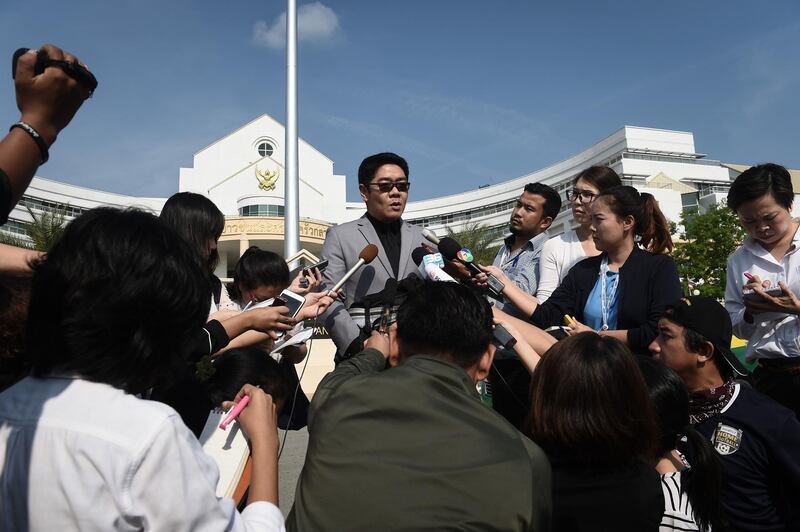A wealthy Japanese man was on Tuesday granted sole parental rights to 13 children he fathered through surrogate mothers in Thailand, in a court ruling that paves the way for him to take them in Japan.
Mitsutoki Shigeta, 28, became the centre of a "baby factory" scandal in 2014 after Thai police linked him via DNA to nine infants found under the care of 24-hour nannies in a plush Bangkok apartment.
The children were estimated to be between two weeks and two years old at the time and have since been cared for by the Thai state. Another four were later deemed also to have been fathered by him.
The extraordinary discovery threw a spotlight on the kingdom's then unregulated rent-a-womb industry, prompting authorities to bar foreigners in 2015 from paying for Thai surrogates.
Mr Shigeta, reportedly the son of a Japanese IT tycoon, left the country after the scandal broke and has never directly explained why he fathered so many children.
But he later took Thailand's Ministry of Social Development and Human Security to court to seek custody.
On Tuesday a Bangkok court granted him legal rights to take the children, saying he had ample money to care for them and had prepared nurses and nannies at a safe residence in Japan.
"For the happiness and opportunities the 13 children will receive from their biological father - who does not have a history of bad behaviour - the court rules them to be the plaintiff's legal children," the Central Juvenile Court said in a statement which did not mention Mr Shigeta by name, apparently for privacy reasons.
_____________________
[ Foreign couples fight to retrieve embryos trapped in India under surrogacy ban ]
[ Motherhood for hire ends in India ]
_____________________
He did not attend the trial but was deemed sole parent of the children after the Thai surrogates signed away their rights, the court added.
Mr Shigeta's lawyer said he would contact the Social Welfare Ministry about the next steps to transfer the children from state custody, adding that the timeline would depend on the readiness of the youngsters, most of whom are aged around four.
"There might be a need for the (state) shelter officials to stay with them for a while to avoid abrupt changes," lawyer Kong Suriyamontol told reporters outside the court.
The Social Welfare Ministry could not immediately be reached for comment.
Mr Shigeta "was born in a big family and wanted the children to grow up together", Kong added without speculating further on his client's motives.
The Thai surrogates were hired before the ban on foreigners. Police said they were paid between $9,300 and $12,500 each.
Thailand's rewriting of its surrogacy laws sparked several legal tussles, including a 14-month custody war between a same-sex couple and a Thai surrogate who was eventually forced to give up the baby girl.
Another high-profile case saw a Thai surrogate lose a court battle to bring back a baby after learning the Australian father was a convicted paedophile.
Sam Everingham, director of the Australia-based consultancy Families Through Surrogacy, said Mr Shigeta's case was an abuse of surrogacy services that had helped give the controversial industry a bad name.
After Thailand clamped down on the trade surrogacy agencies quickly migrated to neighbouring Cambodia, which followed suit and barred the industry in 2016.
In recent months there have been signs the business is growing in Laos, an opaque communist country with no restrictions on surrogacy.
Some surrogacy agencies are now offering services to carry out the embryo transfer in Laos and then provide pregnancy care for the surrogate in Thailand, a wealthier country with vastly superior medical facilities.





